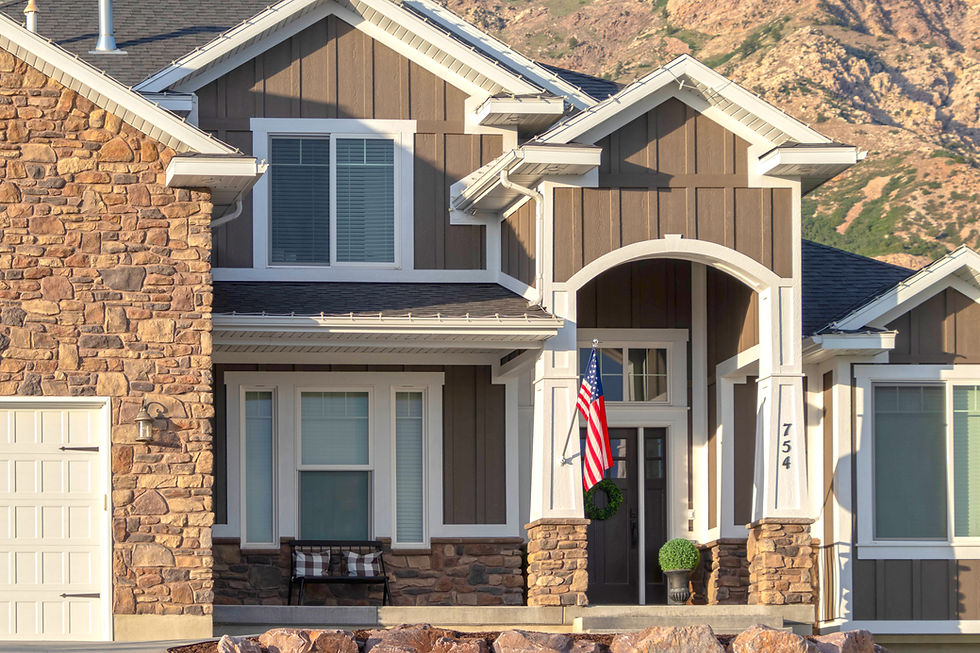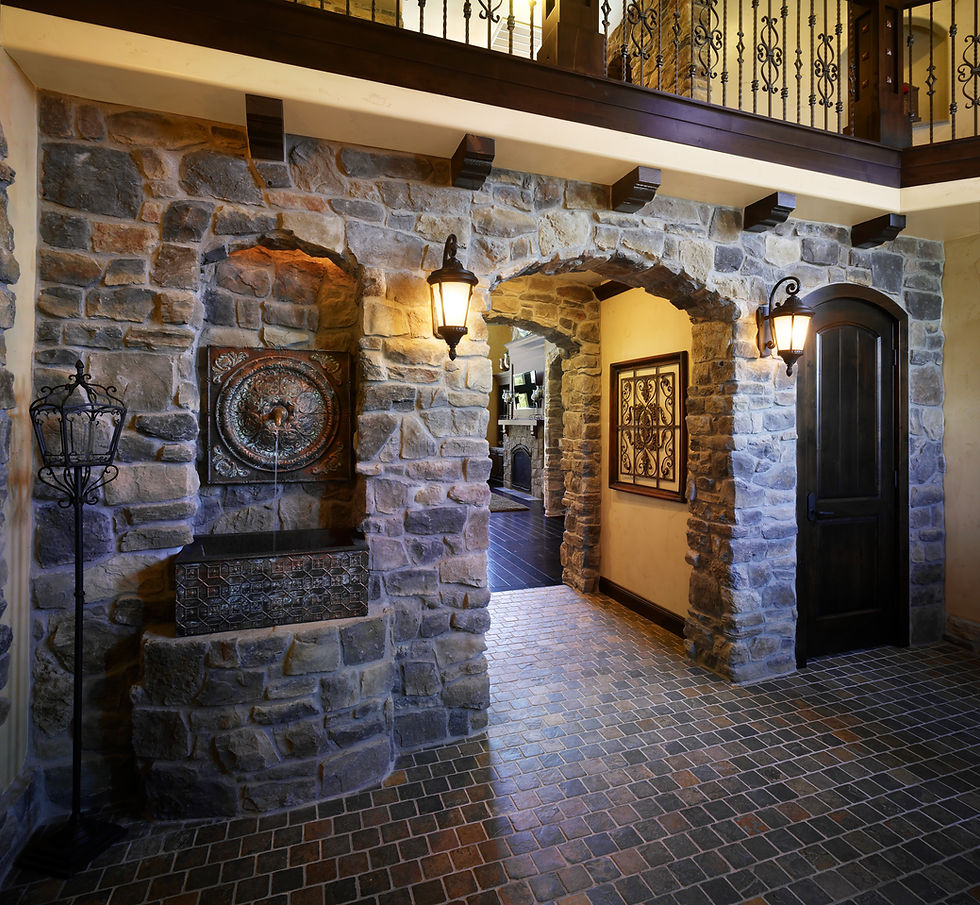What Makes Harristone’s Manufactured Stone Different from Natural Stone?
- Harristone
- Sep 8, 2025
- 3 min read
Updated: Sep 21, 2025
When choosing stone for your next project, you face a fundamental decision: natural stone or manufactured stone veneer? While both options offer beauty and durability, understanding their key differences can help you make the best choice for your specific needs and budget.
Harristone, based in Ogden, Utah, has spent decades perfecting the art of manufactured stone veneer production. Our products demonstrate how modern manufacturing techniques can create stunning alternatives to quarried stone while offering distinct advantages in performance and practicality.

Weight and Installation: A Game-Changer for Builders
One of the most significant differences between manufactured stone veneer and natural stone lies in weight. Natural stone can weigh 15-20 pounds per square foot, while manufactured stone veneer typically weighs just 6-8 pounds per square foot. This dramatic weight reduction transforms installation possibilities.
The lighter weight means manufactured stone veneer requires less structural support, making it suitable for applications where natural stone would be impractical or impossible. Upper-story installations, retrofits on existing structures, and projects with weight restrictions all benefit from this characteristic.
Installation ease extends beyond weight considerations. Manufactured stone veneer arrives pre-sized and shaped, eliminating the time-consuming cutting and fitting required with natural stone. Professional installers can complete projects faster, reducing labor costs and minimizing construction timeline disruptions.
Durability That Stands the Test of Time
Manufactured stone veneer offers exceptional durability that often surpasses natural stone in specific conditions. The controlled manufacturing process creates a product with consistent density and fewer weak points compared to natural stone, which can contain natural fissures or soft spots.
Weather resistance represents another key advantage. Manufactured stone veneer resists freeze-thaw cycles more effectively than many natural stones because it contains fewer pores where water can collect and expand. This characteristic proves especially valuable in climates with harsh winters.
The manufacturing process also allows for enhanced color stability. While some natural stones can fade or change color over time due to UV exposure or weathering, high-quality manufactured stone veneer maintains its appearance for decades.
Cost Factors: Beyond the Initial Price Tag
Natural stone typically costs more upfront due to quarrying, transportation, and processing expenses. However, the true cost comparison extends beyond material prices to include installation, maintenance, and long-term performance considerations.
Manufactured stone veneer's lighter weight reduces foundation requirements and structural modifications, potentially saving thousands of dollars on complex installations. The faster installation process also translates to lower labor costs, making the total project cost significantly more attractive.
Maintenance costs favor manufactured stone veneer as well. The consistent surface texture and density make cleaning easier, while the enhanced durability reduces repair and replacement needs over time.
Visual Realism: Bridging the Gap
Early manufactured stone products often looked artificial, but modern manufacturing techniques have revolutionized visual authenticity. Advanced molding processes capture intricate details from natural stone templates, including surface textures, color variations, and authentic weathering patterns.
Color technology has evolved dramatically, allowing manufacturers to create subtle variations within single pieces that mirror natural stone's complexity. Multiple molds ensure pattern variety, eliminating the repetitive appearance that once plagued manufactured products.
When properly installed, high-quality manufactured stone veneer becomes virtually indistinguishable from natural stone to most observers. The visual improvements continue advancing as manufacturers invest in research and development.
Harristone's Commitment to Quality and Craftsmanship
Harristone's approach to manufactured stone veneer production exemplifies how attention to detail creates superior products. Our Utah facility combines traditional craftsmanship principles with modern manufacturing precision, resulting in products that honor stone's natural beauty while delivering enhanced performance.
Our company's quality control process ensures consistency across every batch. Each piece undergoes inspection for color accuracy, structural integrity, and dimensional precision. This systematic approach eliminates the quality variations that can plague both natural stone quarries and less rigorous manufacturing operations.
Our team includes experienced craftspeople who understand stone's aesthetic and functional properties. This expertise guides product development, ensuring new offerings meet real-world performance demands while maintaining visual authenticity.
Making the Right Choice for Your Project
The decision between manufactured stone veneer and natural stone depends on your specific priorities, budget, and application requirements. Manufactured stone veneer excels in situations requiring lighter weight, faster installation, consistent quality, and cost efficiency. Natural stone remains the choice for applications where authentic geological formation matters most.
Consider manufactured stone veneer when renovating existing structures, working with weight restrictions, or seeking predictable costs and timelines. The technology has matured to deliver exceptional visual results while solving practical installation challenges.
For your next stone project, evaluate both options based on your complete requirements rather than preconceptions about manufactured versus natural materials. The right choice balances aesthetics, performance, budget, and installation considerations to create lasting satisfaction with your investment.


